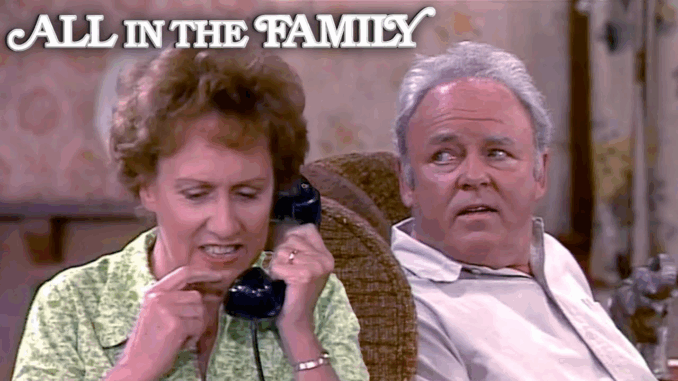
When All in the Family premiered on CBS in 1971, it didn’t just entertain—it challenged, provoked, and ultimately transformed the landscape of American television. Created by Norman Lear, this groundbreaking sitcom dared to tackle the pressing social issues of its time, setting a new standard for what television could achieve.
A Bold Departure from Traditional Sitcoms
Unlike its contemporaries, All in the Family centered around Archie Bunker, a working-class man from Queens, New York, whose bigoted views often clashed with the evolving societal norms. Portrayed by Carroll O’Connor, Archie’s character was both a source of comedy and a mirror reflecting the prejudices prevalent in society. The show’s willingness to address topics such as racism, sexism, and political polarization was unprecedented, making it a subject of both acclaim and controversy. The New Yorker+4Wikipedia+4Reddit+4
Impact and Legacy
All in the Family didn’t just push boundaries—it shattered them. The show consistently ranked at the top of the Nielsen ratings, becoming the most-watched television program in the United States for five consecutive years. Its success paved the way for spin-offs like Maude, The Jeffersons, and Good Times, each exploring different facets of American life. Wikipedia
Beyond its ratings, the show’s cultural impact was profound. It brought discussions about race, gender, and politics into living rooms across America, encouraging viewers to confront uncomfortable truths. The character of Archie Bunker became an iconic figure, representing a segment of society resistant to change, yet portrayed with enough depth to evoke both laughter and reflection.
A Timeless Relevance
Decades later, All in the Family remains relevant, its themes echoing in today’s societal debates. The show’s fearless approach to storytelling serves as a reminder of television’s potential to not only entertain but also to challenge and inspire. As we navigate contemporary issues, revisiting this classic series offers valuable insights into the complexities of social change and the enduring power of honest storytelling.
